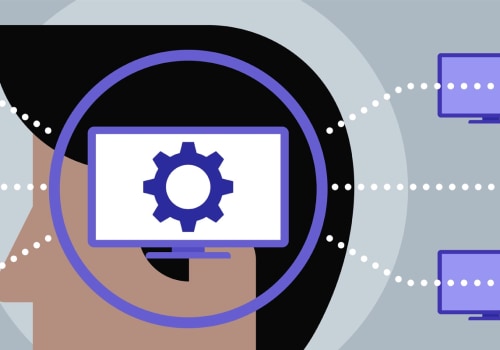Coding can be a tricky business – even for the most experienced developers. From typos to logic errors, simple mistakes can quickly snowball into complex issues that can take ages to debug using a debugger tool. Thankfully, with the right knowledge and tools, you can avoid common coding mistakes and save yourself some serious headaches. In this article, we'll discuss some of the most common coding mistakes, how to identify them and what steps you can take to fix them. Coding can be a tricky business – even for the most experienced developers. From typos to logic errors, simple mistakes can quickly snowball into complex issues that can take ages to debug using a debugger tool. Thankfully, with the right knowledge and tools, you can avoid common coding mistakes and save yourself some serious headaches. In this article, we'll discuss some of the most common coding mistakes, how to identify them and what steps you can take to fix them.
Additionally, we will also explore effective error logging and debugging strategies to help prevent and resolve these mistakes. Additionally, we will also explore effective error logging and debugging strategies to help prevent and resolve these mistakes.
What Causes Common Coding Mistakes?
Coding mistakes can be caused by a variety of factors, such as typos, incorrect logic, incorrect data types, and more. Typos are some of the most common coding mistakes, as they are often hard to detect and can have serious consequences. Incorrect logic can lead to code not functioning as intended, while incorrect data types can cause a program to crash or return unexpected results. Additionally, coding mistakes may arise from a misunderstanding of the language used or an incorrect implementation of the code. Incorrect syntax is another common cause of coding mistakes. Syntax errors occur when the code does not conform to the language's syntax rules.This can result in incorrect output or even program crashes. Additionally, using deprecated language features can lead to coding mistakes that may not be immediately obvious. Finally, coding mistakes can also be caused by bad programming practices, such as using global variables or inefficient algorithms.
Common Coding Mistakes
Common Coding Mistakes are errors that occur when a programmer attempts to write a program in a programming language. These mistakes can range from minor syntax errors to major logic errors. are errors that occur when a programmer attempts to write a program in a programming language. These mistakes can range from minor syntax errors to major logic errors.Common coding mistakes include:Syntax Errors: Syntax errors occur when a programmer fails to enter code that adheres to the rules of the programming language, such as forgetting a comma or a semicolon, or misplacing an operator. Logic Errors: Logic errors occur when a programmer attempts to solve a problem incorrectly, or when the code produces an unintended result. For example, if the code is supposed to produce output that is the sum of two numbers, but instead produces the difference, this would be a logic error. Logic Flow Errors: Logic flow errors occur when the logic of the code is incorrect. This could be due to incorrect order of operations, or a misunderstanding of the problem at hand.
For example, if the code should print out a list of numbers from 1 to 10, but instead prints out numbers from 10 to 1, this would be a logic flow error. These are some of the most common coding mistakes that can occur. It is important for programmers to understand the different types of coding mistakes and how to avoid them. By following best practices and using debugging tools, programmers can ensure their code is bug-free and optimized for performance.
Best Practices for Avoiding Common Coding Mistakes
Coding mistakes can be costly and time-consuming to debug. To ensure your code is bug-free and optimized for performance, it's important to adopt best practices that can help you avoid making mistakes in the first place.Here are some of the best practices you should be aware of:Code Readability:Writing code that is easy to read and understand is essential, as it allows other developers to quickly understand what your code is doing, and can help prevent errors from being overlooked. To make your code more readable, take advantage of consistent formatting, good commenting practices, and descriptive variable and function names.
Debugging Tools:
Using debugging tools such as debuggers and profilers can help you identify errors quickly and easily. Debuggers allow you to pause the execution of your code at any point, so you can observe the values of variables and see how your program is executing. Profilers are useful for analyzing performance issues, such as slow code or memory leaks.Automated Testing:
Automated testing is a great way to quickly identify errors in your code.By writing automated tests, you can ensure that any changes you make to your code don't introduce errors or break existing features. Automated tests also make it easier to track down the source of a bug when one occurs.
Code Reviews:
Having an experienced developer review your code before it goes into production can help identify potential issues before they become problems. Code reviews also provide valuable feedback on coding style and best practices that can help you improve your code in the future. By following these best practices, you can reduce the risk of making coding mistakes and ensure that any issues that do arise can be identified and fixed quickly. In this article, we have discussed the importance of avoiding common coding mistakes and how best practices can help to ensure bug-free code. We have looked at some of the most common coding mistakes, what causes them, and how to avoid and fix them.Experimenting with different approaches and tools can help to find the best solution for any coding challenges. Proper planning, testing, and debugging are essential steps to ensure that code is optimized for performance. By following these tips and best practices, developers can ensure their code is bug-free and optimized for performance.











